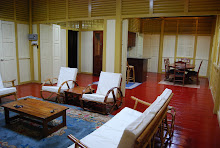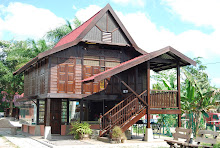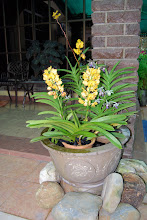Tuesday 15 January 2008. We read with tears in our eyes of perhaps the last meeting between two old friends. Yesterday Tun Dr Mahathir Mohamad was at the bedside of his ailing friend Pak Suharto at Pertamina Hospital Jakarta. He was accompanied by his wife Tun Dr Siti Hasmah Mohd Ali. In the hospital ward Tun was reported as having held his friend’s left hand and called out Suharto’s name three times. The critically ailing patient reportedly moved his hand and cried in recognition of the visit of a true friend and by his bedside. It must be a moving scene and Tun too shed tears not believing that Suharto had succumbed to his sickness too quickly. In such moment it was appropriate that Tun and his wife said a silent prayer for a friend.
A day earlier Lee Kuan Yew, former Prime Minister of Singapore visited Suharto too.
Suharto 86, Lee Kuan Yew 84 and Tun Dr Mahathir Mohamad 82 all octogenarian were at one time the ‘supremo’ of each other’s nation, each having held the helm of Indonesia, Singapore and Malaysia respectively for two decades and more. It is extraordinary that we continue to hear and take note of their wisdom and gestures though they have retired as premiers. Maybe we should grasp some of the salient points that they had expressed or shown this week alone bearing in mind the situation prevailing.
Firstly Suharto would not be expected to declare any wisdom in the situation he is in. Yet his personal doctor intimidated that the former President was an army personnel and had strong fighting spirit and it was this that keep him clinging to life and survival. Next Lee Kuan Yew elicited on the need to be effective and active at the senior age. “Retiring to take it easy is a sure route to death” “People tend to die shortly after retiring, and the most important lesson I learn is that we all need stimuli” he said. Lee Kuan Yew reminded that “ It is the stimuli, the constant interaction with people across the world that keeps him aware and alive to what’s going on and what we can do to adjust to this different world”. His advice is simple and brief “Keep yourself interested, have a challenge”
A day earlier Lee Kuan Yew, former Prime Minister of Singapore visited Suharto too.
Suharto 86, Lee Kuan Yew 84 and Tun Dr Mahathir Mohamad 82 all octogenarian were at one time the ‘supremo’ of each other’s nation, each having held the helm of Indonesia, Singapore and Malaysia respectively for two decades and more. It is extraordinary that we continue to hear and take note of their wisdom and gestures though they have retired as premiers. Maybe we should grasp some of the salient points that they had expressed or shown this week alone bearing in mind the situation prevailing.
Firstly Suharto would not be expected to declare any wisdom in the situation he is in. Yet his personal doctor intimidated that the former President was an army personnel and had strong fighting spirit and it was this that keep him clinging to life and survival. Next Lee Kuan Yew elicited on the need to be effective and active at the senior age. “Retiring to take it easy is a sure route to death” “People tend to die shortly after retiring, and the most important lesson I learn is that we all need stimuli” he said. Lee Kuan Yew reminded that “ It is the stimuli, the constant interaction with people across the world that keeps him aware and alive to what’s going on and what we can do to adjust to this different world”. His advice is simple and brief “Keep yourself interested, have a challenge”
Tun Dr Mahathir Mohamad touching on leadership gave some salient points. Firstly the measured characteristics could be varied. Yet Tun preferred that one would be “How he handles his failure will demonstrate whether he really has the qualities” He distinguished that “there are many people with good leadership qualities but they are never going to make it simply because the circumstances are not propitious for them” I quote below seven attributes of a good leader as outlined by Tun.
i. A good leader may not be humble but at least he should not be boastful.
ii. He must be prepared to accept responsibilities but should not be too pushy and insistent on taking the lead.
iii. He should not seek to blame others for failures but to admit his culpability. He should not point fingers or seek scapegoats.
iv. He should be modest and not seek praise and glory.
v. He should know how to handle his followers as much as his superiors. He must be sensitive to the sensitivities of others.
vi. He should be willing to do what he expects others to do. He should uphold the slogan of leadership by example.
vii. He should be learned and more intelligent at least by comparison of the people he leads.
Within the ensuing heightening election fever such revelation or advice comes at a propitious time and spoken at an undergraduate conference added more spice. He was forceful enough to add “aspiring leaders resorting to unethical ways and even violence to become a leader should be rejected outright”
The trio Suharto, Lee Kuan Yew and Mahathir we recognized had caused for their respective government and country to achieve success and standing in the world according to their style and guidance. That they held the compassion and endurance of their people for many years albeit for several decades spoke paramount for their leadership qualities. As octogenarian their continuing presence in public and media not only at home but abroad truly justified the much needed stimuli they craved for and stamped the mark of true and lasting leadership. It is for us to take heed and do the best if we want to enroll into that category.











1 comment:
Pak Non
I stumbled upon Lee Kuan Yew's comment as you alluded to here in your posting. It forced me to sit up and take notice. Read that article right to the end.
Post a Comment